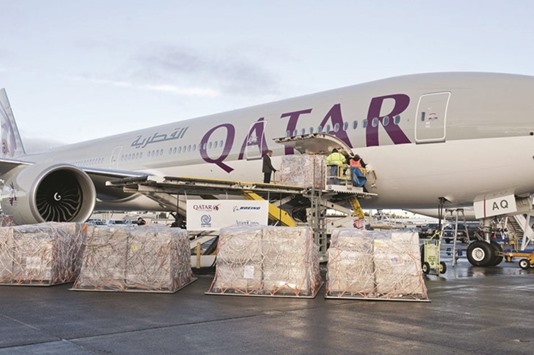Middle Eastern carriers saw airfreight demand expand by 5.4%, and capacity rise 9.2% year-on-year in November last year, the International Air Transport association (IATA) has said in its latest report.
Although the Middle East led the way as the “only market showing positive growth”, the rate fell to less than half the 11.9% average growth for the year-to-date. Falls in the oil price are impacting some economies in the region, it said.
Major economies in the Middle East, including Saudi Arabia and the United Arab Emirates, have seen slowdowns in non-oil sectors, but the rates of growth remain robust and this should help sustain solid growth in air freight demand for local carriers.
According to IATA air cargo volumes (measured in freight tonne kilometres or FTKs) globally were down 1.2% in November 2015, compared to November 2014. Total cargo volumes, however, expanded compared to October 2015, and were higher than the low point in August. This indicates that the decline in cargo demand may be bottoming out, IATA said.
The negative year-on-year comparisons occurred across all regions with the exception of the Middle East. Of the major markets that together comprise more than 80% of total trade, Europe was down 2.0%, North America by 3.2%, and Asia-Pacific by 1.5%.
The comparative weakness in these regions was driven largely because the performance in November 2014 was very strong. Latin American and African markets also fell, by 6.4% and 6.0% respectively.
The Middle East region posted 5.4% growth.
IATA’s director-general and CEO Tony Tyler said: “The freight performance in November was a mixed bag. Although the headline growth rate fell again, and the global economic outlook remains fragile, it appears that parts of Asia-Pacific are growing again and globally, export orders are looking better. In fact, the downward trend in FTK volumes appears to be bottoming out. But there is a great deal of uncertainty. The current volatility of stock markets shows how much the health of the global economy — upon which air cargo depends — remains on a knife-edge.”

Although the Middle East led the way as the u201conly market showing positive growthu201d in airfreight demand, the rate fell to less than half the 11.9% average growth for the year-to-date, IATA said in its report.
